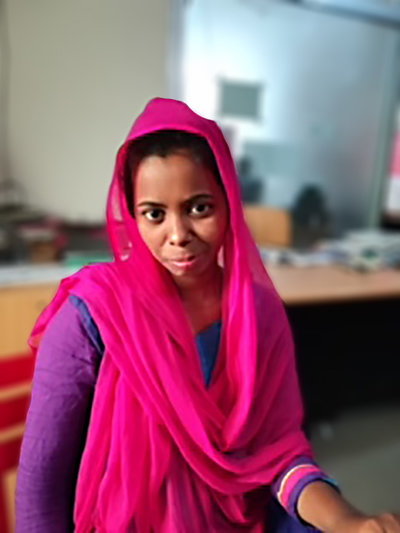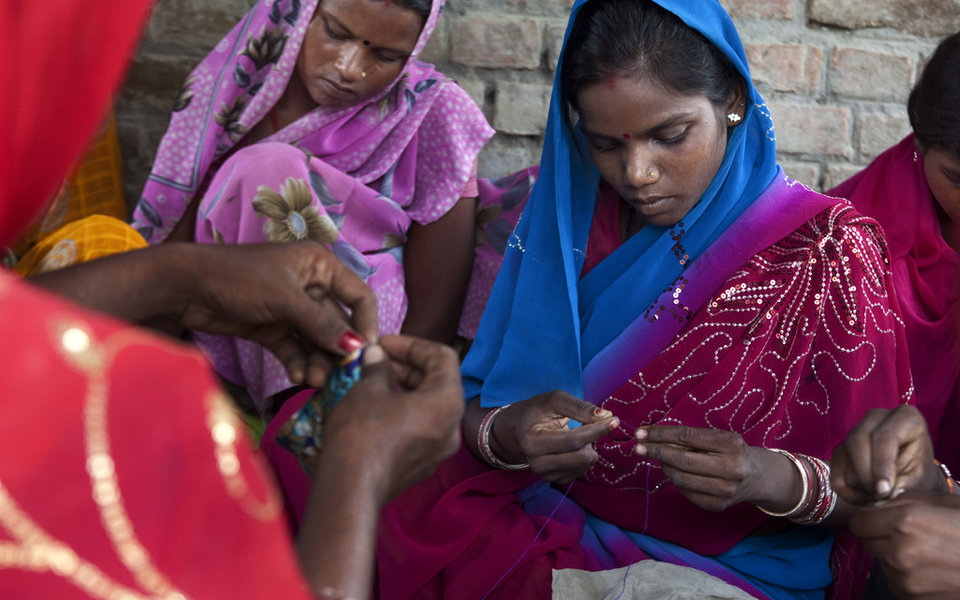In depth
The power of collective worker action
Our partner Awaj Foundation aims to improve workers’ livelihoods through training on health, finance, leadership, negotiation and collective bargaining. Through its UP! community-based training programme, Awaj Foundation is building the bridge between female garment workers and factory management to secure workers’ legal rights and better address their needs.
Results:
The Awaj Foundation signed six out of the 10 collective bargaining agreements (CBAs) that were concluded in Bangladesh in 2017. This led to improvements above and beyond what’s required by law. These included:
Wage increase
The annual wage increment is mandated at 5% by Bangladeshi law. However, through the CBAs, workers negotiated a wage increase of 7-8%.
Sick leave
Annual medical leave is set at 14 days by law. Sick leave increased to 15 days per year in two of the CBA factories.
Festival leave
Bangladeshi law says that factories should provide 11 days of festival leave per year. However, festival leave was increased by more than 11 days in five of the six CBA factories.
Ultrasound services
In one factory (Natural Denim) the employer agreed to pay each pregnant female employee 500Tk for an ultrasound check-up.
Rasmi’s Story
Rasmi, 21, has worked as an operator at Star Garments Ltd for three years. For Rasmi, work isn’t just an opportunity to earn money to survive, it’s an opportunity for her to develop her confidence and to work for improvements that will benefit all of her co-workers.
Rasmi, first took part in the UP! training programme that focused on finance, health and leadership skills. It’s given Rasmi the chance to take ownership of her finances. After the training, she opened a bank account, learnt how to budget and started to save money. Rasmi then went on to the next stage of UP!, which focused on how to negotiate on issues in the workplace.
Rasmi,’s monthly salary was due on the 10th of the month but her factory used to pay on the 25th. Through the training, Rasmi learnt that Bangladesh labour law specifies that workers should be paid within seven working days of the next month. So she gathered her colleagues together with Awaj Foundation to determine how to approach management and inform them of workers’ demand to be paid on time.
After negotiations with management, the issue has been solved. Rasmi, and her colleagues are now being paid on time.
It was not an easy job for me and my colleagues to ask the owner to disburse money by the 10th of every month. The support we got from Awaj Foundation helped to make it possible. I used to be fearful and confused about how to address issues to management but learning how to negotiate made me confident about the process of addressing issues to management.”

